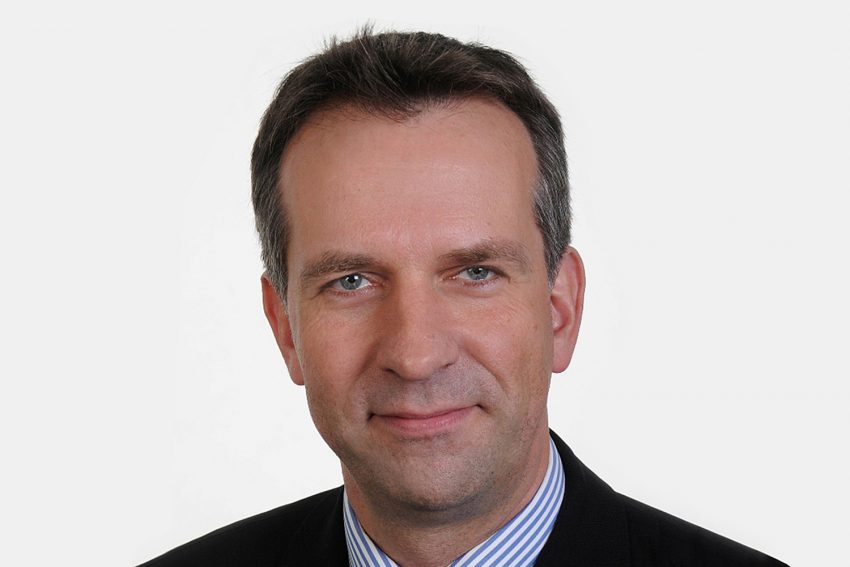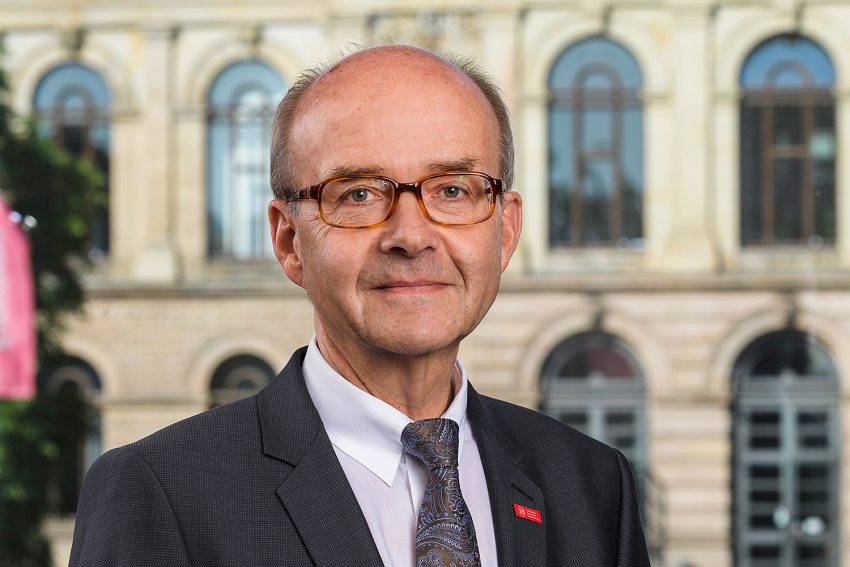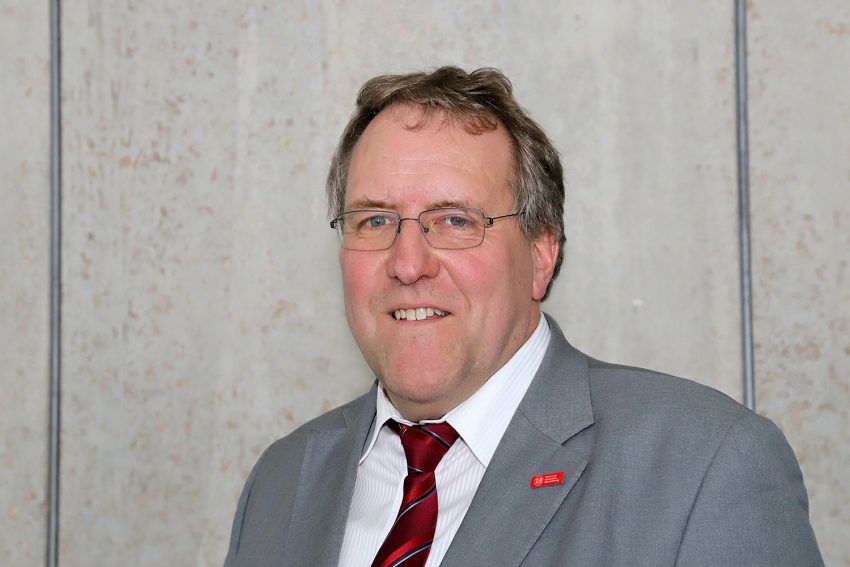Braunschweig’s telecommunications technology wins three awards DVB, 6G, AI: Specialist organisation honours TU Braunschweig scientists for pioneering communications and broadcasting technology
Berlin: On 23 November, the prizes of the Information Technology Society (ITG) of the VDE Association for Electrical, Electronic & Information Technologies were awarded at the Berlin-Brandenburg Academy of Sciences and Humanities. Three awards went to scientists from the Institute for Communications Technology (IfN) at Technische Universität Braunschweig. Prof Ulrich Reimers received the prestigious Science Prize for Information and Communication Technology for his research in the field of digital video broadcasting (DVB) and 5G broadcasting. Prof Tim Fingscheidt received the ITG Fellowship for his research in AI-based speech communication. Tobias Doeker, Johannes Eckhardt and Prof Thomas Kürner received the ITG Prize 2023 for outstanding publications on terahertz communication.
Science prize for Prof. Ulrich Reimers
Last awarded in 2018, the prize honours Professor Ulrich Reimers for his “pioneering achievements in the field of Digital Video Broadcasting (DVB), which have been recognised by the entire professional community, as well as for his scientific leadership in the convergence of mobile communications and television and the resulting 5G broadcasting”.
Prof. Reimers: “I was completely surprised to receive a prize that was first awarded in 1984 and of which I am only the tenth recipient. 35 million households in Germany alone use DVB, which is certainly a success. I am particularly pleased that the 5G Broadcast vision has been recognised. And none of this would have been possible without a great team at the Institute for Communications Technology. Thank you – to the team and for the award!
The VDE ITG Science Award recognises outstanding achievements that contribute to a significant expansion of fundamental knowledge in the field of communications and information technology.
Prof. Reimers is considered by many to be the “father of DVB”. The term DVB stands for “Digital Video Broadcasting” and refers to international standards for the transmission of digital content for cable, terrestrial and satellite television (DVB-C, DVB-T2, DVB-S/S2). From the start of the DVB project in 1993 until 2012, Prof. Reimers led the Technical Module for the technical specification of DVB. In recent years, he has been working on the convergence of mobile and TV, and with the 5G broadcast solution he and his team have developed, he has created a way to relieve traditional mobile networks of the rapidly increasing amount of data generated by video. European broadcasters plan to use 5G broadcast applications on a large scale for the first time in 2024 for the Olympic Games in Paris and the European Football Championship in Germany.
Prof. Reimers has headed the Institute for Communications Technology (IfN) since 1993. Since October 2012, he has been Vice-President of TU Braunschweig with responsibility for “Strategic Development and Technology Transfer”. He retired in 2020 after 27 years at TU Braunschweig.
ITG Fellowship for Prof. Tim Fingscheidt

More than just a gimmick: Prof Tim Fingscheidt is developing a practical course in machine learning. Photo credit: TU Braunschweig/Tim Fingscheidt.
The Information Technology Society ITG justifies the decision with his “outstanding merits, commitment and scientific achievements in the field of speech communication for robust speech transmission and speech enhancement”. Previous recipients of this award at TU Braunschweig include Prof. Ulrich Reimers (2018) and Prof. Hermann Rohling (2019).
Prof. Fingscheidt: “It’s not every day you become a Fellow of a scientific society. What’s more, only one in a thousand of the eligible members of the ITG can become a Fellow. So it’s really gratifying when your peers on the Award Review Panel come to such a decision. Perhaps the fact that our research and algorithms for voice communication can be found in millions of smartphones around the world helped with the decision.”
Prof. Tim Fingscheidt’s research focuses on language technology and computer vision. Artificial Intelligence (AI) plays a key role in both areas. He has led the Deep Learning Lab at TU Braunschweig for many years and is involved in the KI4All project for AI courses across faculties and universities. In the field of computer vision, the main research interest is the machine perception of the environment in autonomous driving. In the area of speech technology, which is the focus of his appointment as an ITG Fellow, Fingscheidt’s team is working with various industrial partners to improve mobile telephony and teleconferencing systems. He is also researching how to improve reading support for children.
Fingscheidt has been a university professor at TU Braunschweig since 2006 and is head of the Signal Processing and Machine Learning department at the Institute of Communications Engineering. In autumn 2023, he was elected as one of three university representatives on the ITG Board for the 2024-2026 term of office.
ITG Prize 2023 for outstanding publications to Tobias Doeker, Johannes Eckhardt and Prof. Thomas Kürner
Prof. Thomas Kürner and his colleagues Tobias Doeker and Johannes Eckhardt were honoured by the ITG for an outstanding scientific contribution on terahertz communication in the journal “IEEE Transactions on Antennas and Propagation”. Terahertz communication is radio communication at carrier frequencies higher than 300 gigahertz (0.3 terahertz), which is currently being discussed as one of the possible candidates for future 6G radio communication.
In his laudatory speech, Prof. Jörg Robert (TU Ilmenau) said: “The data rate required in communication systems will continue to increase. Scenarios involving a large number of subscribers in a confined space with complex wave propagation conditions are particularly challenging. The use of systems based on terahertz communication offers an elegant solution. However, a number of scientific questions still need to be answered before these systems can be introduced in practice. Prof. Kürner and his group have been international pioneers in this field for many years. This work is another outstanding contribution in a very interesting field of application.”
Prof. Kürner: “The award recognises the outstanding work my team has been doing in the field of THz communications for years. It is an incentive to continue to shape the path of this technology towards 6G applications”.
Prof. Thomas Kürner has been Professor of Mobile Radio Systems at the Institute of Communications Engineering at Technische Universität Braunschweig since 2003. He is the spokesman for the DFG research group “Metrology for THz Communications”, or Meteracom for short, which focuses on measurement methods for THz communications systems, for example to predict their performance in real-world environments.
Original publication:
Doeker, J. M. Eckhardt and T. Kürner, “Channel Measurements and Modelling for Low Terahertz Communications in an Aircraft Cabin,” in IEEE Transactions on Antennas and Propagation, vol. 70, no. 11, pp. 10903-10916, Nov. 2022, DOI: 10.1109/TAP.2022.3191218.


